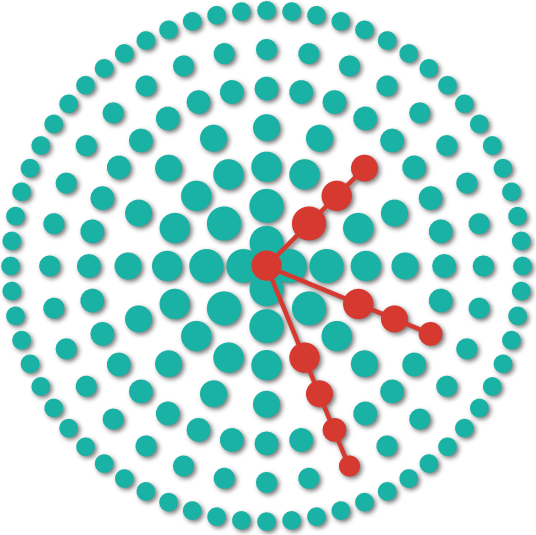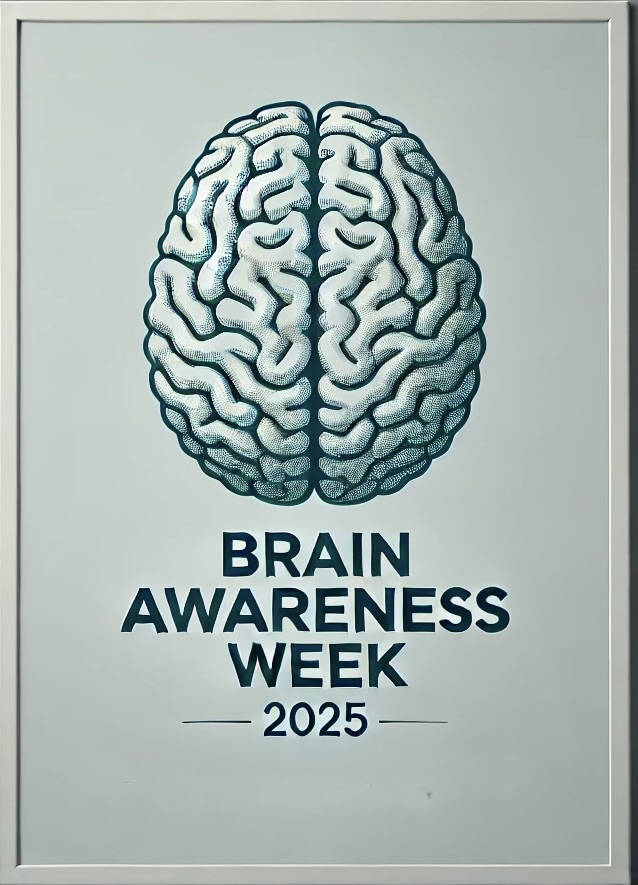Brain Awareness Week: Why Trigeminal Neuralgia Deserves More Attention
Introduction
Every March, Brain Awareness Week raises awareness about brain health, neurological disorders, and medical research. While conditions like Alzheimer’s, Parkinson’s, and epilepsy are well known, less common yet debilitating neurological conditions like trigeminal neuralgia (TN) often go unrecognised.
Trigeminal neuralgia is a neurological pain disorder affecting the trigeminal nerve, which connects the face to the brainstem. It causes sudden, severe facial pain, often triggered by simple activities such as eating, talking, or even a light touch.
Although TN is not always categorised as a brain disease, it remains closely linked to brain function, pain processing, and the central nervous system. Brain Awareness Week offers an opportunity to educate the public and the medical community about TN, its impact, and the urgent need for better research and treatment options.
What is Brain Awareness Week?
Brain Awareness Week is a global event held every March, organised by the Dana Foundation. The campaign helps people understand brain function, neurological disorders, and ongoing research in neuroscience.
This awareness initiative is essential because it:
- Informs the public about neurological conditions, including lesser-known disorders like TN.
- Encourages funding for brain research, leading to better treatments and medical breakthroughs.
- Reduces stigma around neurological conditions, particularly chronic pain disorders.
- Improves healthcare policies, ensuring better access to neurologists and pain specialists.
Conditions such as stroke, dementia, and multiple sclerosis receive significant public attention, yet TN remains underdiagnosed and poorly understood. Brain Awareness Week provides a platform to raise awareness about this severe yet often overlooked condition.
Understanding Trigeminal Neuralgia
Trigeminal neuralgia is a chronic neurological condition affecting the trigeminal nerve, the largest cranial nerve responsible for facial sensation. The pain, often described as electric shock-like, stabbing, or burning, can be triggered by everyday actions such as:
- Brushing teeth
- Eating or drinking
- Talking or smiling
- Feeling a cold breeze or a light touch on the face
Because TN symptoms resemble dental problems, many sufferers receive the wrong diagnosis. As a result, they may undergo unnecessary tooth extractions before reaching the correct diagnosis.
Is TN a Brain Condition?
Trigeminal neuralgia is classified as a neurological disorder, but it has strong connections to brain health and function:
- The trigeminal nerve originates in the brainstem, meaning TN affects a crucial area of the central nervous system (CNS).
- Pain signals from TN are processed in the brain, particularly in the thalamus and somatosensory cortex.
- The most common cause of TN is compression of the trigeminal nerve at the brainstem, typically by an artery or vein.
- Surgical treatments such as Microvascular Decompression (MVD) and Gamma Knife Radiosurgery involve direct intervention at the brainstem level.
- TN is often linked to multiple sclerosis (MS), a disease affecting the brain and spinal cord.
While TN is not a degenerative brain disease, it clearly falls within neurology and pain research due to its brain involvement and impact on pain processing pathways.
How TN Affects Brain Function and Mental Health
Trigeminal neuralgia does not just affect the facial nerves—it also disrupts brain function, mental health, and overall well-being.
Changes in Pain Processing
MRI studies reveal that TN alters how the brain processes pain signals. The thalamus, somatosensory cortex, and prefrontal cortex become hyperactive, which amplifies pain perception, making even minor stimuli feel unbearable.
Impact on Mental Health
The severe pain caused by TN has a profound effect on mental health. Many sufferers experience:
- Anxiety and fear due to the unpredictability of TN attacks.
- Depression triggered by chronic pain and social withdrawal.
- Sleep disturbances, leading to fatigue and difficulty concentrating.
Due to its extreme impact, TN is sometimes referred to as the “suicide disease”. Raising awareness ensures that sufferers receive mental health support alongside pain management treatments.
Why Brain Awareness Week Matters for TN
Brain Awareness Week creates an opportunity to include TN in discussions about neurological conditions and brain research.
- Early diagnosis prevents unnecessary treatments – Many TN sufferers undergo dental procedures or years of misdiagnosis before seeing a neurologist. Educating doctors and dentists can help reduce diagnostic delays.
- Increased awareness leads to better research funding – TN treatment options remain limited. More research is needed into less invasive therapies, nerve regeneration, and alternative pain relief options.
- Recognising the mental health impact of TN is essential – TN affects more than just physical health. Access to counselling and mental health support is crucial for those living with chronic pain.
- The public and medical professionals need accurate information – Many people mistakenly believe TN is a dental issue rather than a serious neurological disorder.
The Future of TN Research
Brain Awareness Week also highlights ongoing research into TN and potential breakthroughs in neuroscience. Scientists are currently exploring:
- Advanced brain imaging techniques to improve TN diagnosis.
- Non-invasive neuromodulation therapies, such as transcranial magnetic stimulation (TMS), to manage pain.
- The role of inflammation and the gut-brain connection in chronic pain disorders could influence TN treatment strategies.
Greater investment in neurological research and pain management could lead to new, effective treatments for TN sufferers. If you would like to support research and advocacy for TN, consider donating to organisations funding neurological studies.
Final Thoughts
Brain Awareness Week is not just about research and science—it is about real people living with neurological conditions like TN.
By increasing awareness, supporting research, and advocating for better treatment options, we can ensure TN receives the recognition and funding it urgently needs.
Now is the time to ensure TN is part of the wider conversation on brain health.


